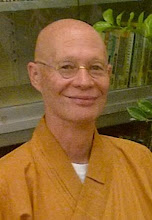By the time Buddhism began to find its way into Chinese society at some period in the first century from India, Confucianism and Taoism were already firmly established. Chinese Buddhism seemed to absorb elements of both of these great traditions. Taoism expressed itself through many of the physical arts and traditional Chinese medicine while Confucianism spoke of the true character of a person and interpersonal relationships.
In our search for spiritual, mental and physical happiness and well-being our tendency has often been to concentrate on one of these elements to the detriment to the others. Even many Buddhists can easily forget the importance of the body in our daily practice. When the Shakyamuni Buddha had his turning point from ascetic practices of denial of the body through severe fasting and conditions it was a young girl who offered food to Siddhartha before he found Enlightenment. Food and body and relationship are important elements in our daily practice.
For over twenty years my work had been in the mental health arena in many capacities from counselling and psychotherapy, support facilitation to administration and it never ceased to amaze me that recovery from mental illness was almost always aimed at drug administration over and above other vitally important elements in one’s life.
There are Five Foundations which form the interdependent web of human well-being. I call them the Five Guidelines to Well-Being. They are interdependent as nothing can exist solely by itself. Each phase impacts upon the other and a deficiency in one phase will also cause a deficiency in the other. In many ways the Five Foundations have similarities to the Wu Xing (Five Phases) of Traditional Chinese Medicine.
Right Spirit (神 shen)
This refers to our sense of transcendence. It has nothing to do with religion. Buddhism teaches us to delve deeper into our daily problems and helps us to an understanding of ourselves in a spiritual dimension as opposed to worldly views. We possess a soul which has continued through many reincarnations and which we make every effort to purify as to cease the cycle of birth and death and suffering.
Right Mind ( 精神 Spirit-Mind, essence, 心地 character, 意 yi)
This is a very broad area. Chinese Pure Land Buddhism speaks of our mind and mental processes as well as the Buddha Mind, or Buddha Nature. Through the practice of Mindfulness and Buddha name meditation we begin to have a calm and peaceful mind. A calm and peaceful mind develops a calm and peaceful character.
Right Relationship (相互依存Xiānghù yīcún)
Nothing exists by or for itself. Everything depends on something else. Life is a complex network of relationships and inter-relationships. The sense of separation we often have as humans is a complete illusion. This foundation also refers to personal relationships. We grow and understand ourselves and others through personal relationships. Each person we meet brings us the gift or relationship no matter how joyful or painful that may be. It is through the gift of relationship we can begin to resolve of Karmic lessons.
Right Consumption
Diet is vital of physical and mental well-being. In our fast paced world we are consuming more and more “dead” food, food which has been highly processes and often grown using an overload of chemicals. In Traditional Chinese medicine we speak of Qi or Vital Energy 气 which sustains our physical and mental health and impacts upon our spiritual well-being. Qi is absorbed into our body by what we consume in food, oxygen, drink and through what we process mentally (mind food).
Diets with alcohol, high caffeine and “dead” food are not conducive to our well-being. Intake of vegetables (preferably organic), herbal food, fresh air and good positive mind food sustain life and well-being.
Right Movement
We are moving beings. We are designed to move! Yet our ever increasing sedentary life style is killing us. Movement also refers to the proper movement of Qi, Oxygen, Blood and Fluids through the body. When these are obstructed there is disease and disharmony.
The brain comprises about 2% of our total body weight but utilizes approximately 20% total body oxygen. A daily exercise routine is important. Traditional Chinese Qigong, T’ai Chi or Yoga are designed to move Qi through the body and maintain good health. However, even a 20 -30 minute walk a day can make all the difference in both our physical and mental well-being.
In Pure Land Buddhism we can combine Buddha Name Recitation with Buddhist Qigong Movements as well as mindfulness walking meditation.
There is much more to these Five Guidelines which the space of this article does not allow. However one can find an almost immediate difference to one’s well-being when we begin in any one Foundation. When we have all of them in balance. . . well, you be the judge!



No comments:
Post a Comment